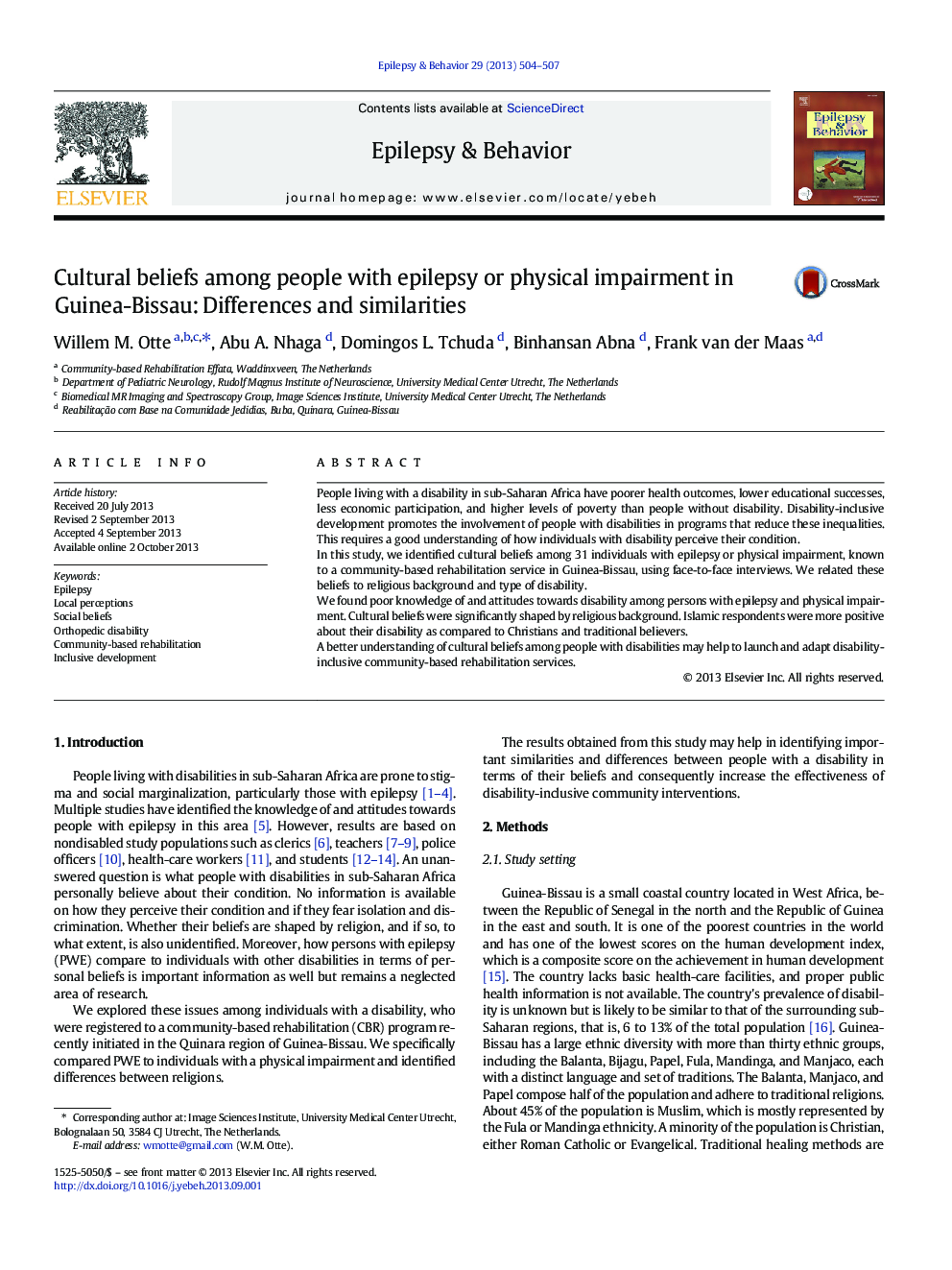| Article ID | Journal | Published Year | Pages | File Type |
|---|---|---|---|---|
| 6012669 | Epilepsy & Behavior | 2013 | 4 Pages |
â¢Epilepsy care is problematic in rural Guinea-Bissau, West Africa.â¢We explored cultural beliefs among people with epilepsy or physical impairment.â¢Differences between epilepsy and physical impairment were subtle.â¢However, beliefs were significantly shaped by religious background.
People living with a disability in sub-Saharan Africa have poorer health outcomes, lower educational successes, less economic participation, and higher levels of poverty than people without disability. Disability-inclusive development promotes the involvement of people with disabilities in programs that reduce these inequalities. This requires a good understanding of how individuals with disability perceive their condition.In this study, we identified cultural beliefs among 31 individuals with epilepsy or physical impairment, known to a community-based rehabilitation service in Guinea-Bissau, using face-to-face interviews. We related these beliefs to religious background and type of disability.We found poor knowledge of and attitudes towards disability among persons with epilepsy and physical impairment. Cultural beliefs were significantly shaped by religious background. Islamic respondents were more positive about their disability as compared to Christians and traditional believers.A better understanding of cultural beliefs among people with disabilities may help to launch and adapt disability-inclusive community-based rehabilitation services.
